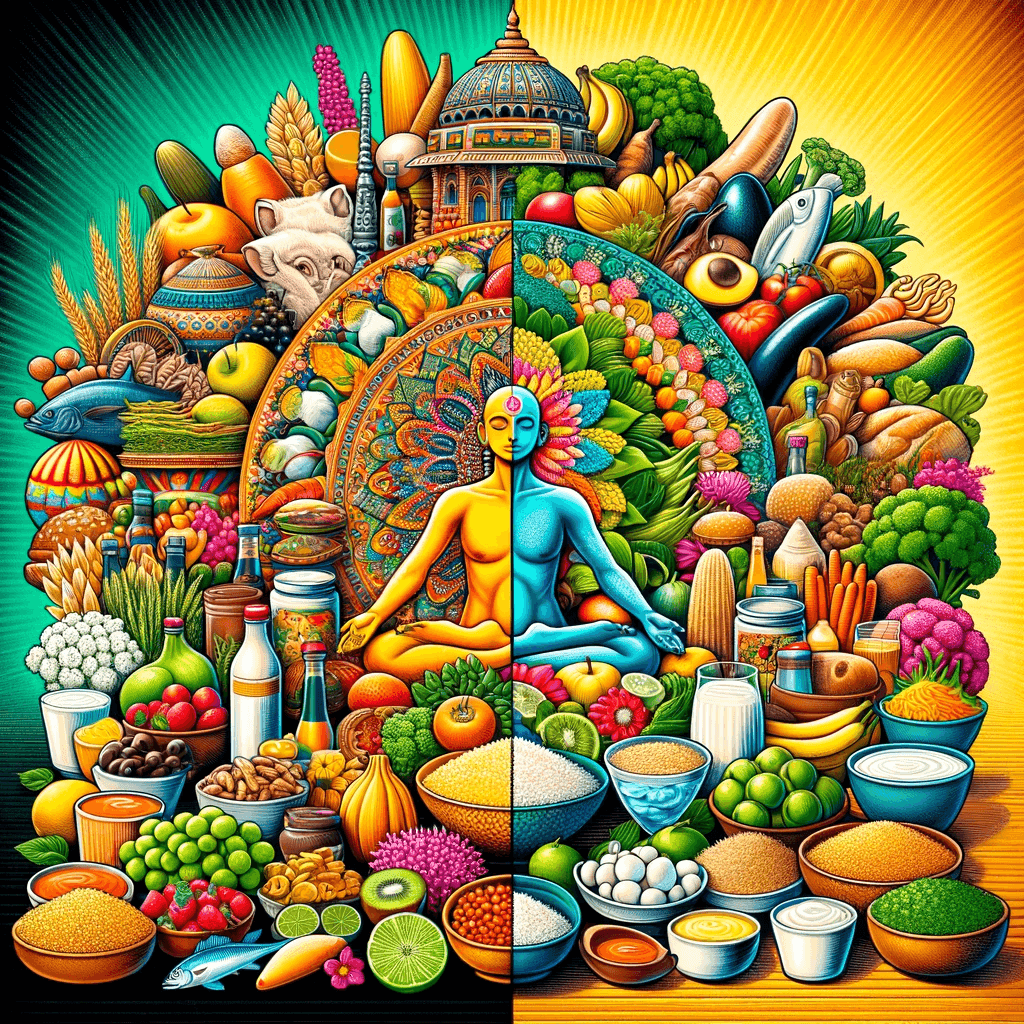Vegetarianism in Sanatan Dharma
The common perception that all Hindus are vegetarians is a widespread myth. Sanatan Dharma, the ancient and eternal way of life often identified with Hinduism, is known for its diversity and inclusivity, including dietary practices. This article explores the roots of this myth, the actual teachings of Sanatan Dharma regarding diet, and the current practices in Bharat.
Myth/Truth and Other Details

Why There Is a Myth?
The myth likely stems from the emphasis on ahimsa (non-violence) in Hindu scriptures and the spiritual benefits associated with vegetarianism. Texts like the Manusmriti and the Mahabharata extol the virtues of a vegetarian diet, linking it to non-violence and spiritual purity. Additionally, influential figures and sects within Hinduism have historically advocated for vegetarianism, further cementing the association.
What's the Truth?
The truth is more nuanced. While vegetarianism is encouraged and practiced by many Hindus, it is not a universal practice. The last survey of dietary habits in Bharat revealed that 71% of the population, including a significant portion of Hindus, consume meat. This shows that dietary choices in Hinduism are influenced more by regional traditions, personal beliefs, and economic factors than by strict religious mandates.
Details About the Subject
Sanatan Dharma does not have a singular stance on vegetarianism. The Bhagavad Gita, a key scripture, does not explicitly mandate vegetarianism but emphasizes a balanced, disciplined lifestyle and compassion for all beings. The Garuda Purana, while underscoring ahimsa, does not specifically address dietary practices. Thus, interpretations vary, with some viewing vegetarianism as a way to practice non-violence and others accepting non-vegetarian diets as long as they are consumed with gratitude and moderation.
...




